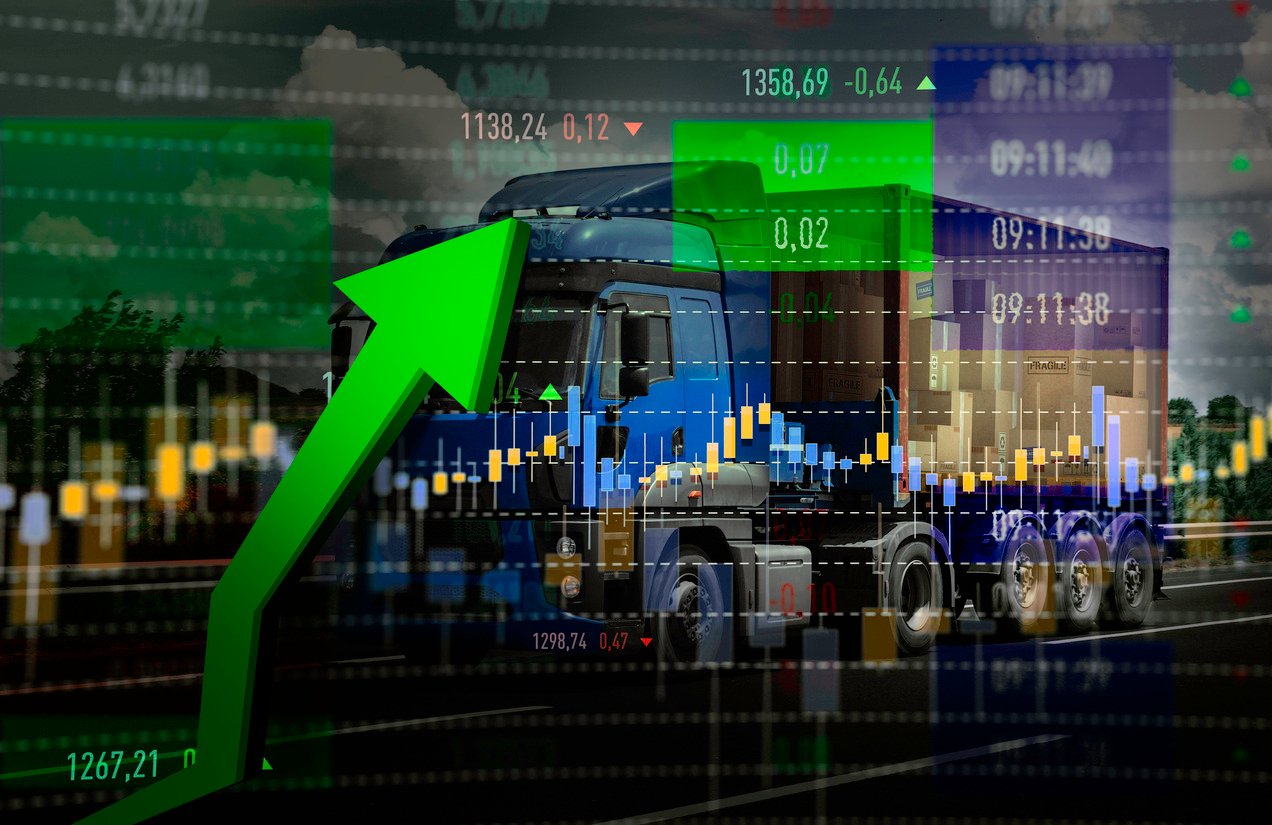7 Fleet and Fuel Management Trends to Watch in 2025

Keeping up with trends is more crucial than ever. Technological advancements, regulatory changes, and shifting customer demands are shaping how businesses must operate. To remain competitive and prepare for future challenges, being uninformed can mean:
- Missed opportunities
- Loss of customers
- Penalties and fines for non-compliance
- Reputational damage
2025 is just around the corner, and it’s predicted to transform the fleet management landscape. To start the year off in the driver’s seat and lay the groundwork for long-term success, make a resolution to stay informed of the latest industry trends.
So, what will be trending in the upcoming year?
1. Next-Gen Telematics
Telematics systems are an indispensable tool for fleet management. 2025 will see these technologies evolve further in managing, monitoring, and optimizing fleet operations.Next-gen telematics will go beyond tracking or pinpointing a vehicle’s location. Using AI-driven analytics, improved sensors, and enhanced connectivity solutions, next-gen telematics will provide on-demand diagnostics on vehicle performance in real time, including:
- Fuel consumption
- Driver behavior
- Tire pressure
- Engine temperature
- Vehicle maintenance
- Route optimization
By enhancing efficiency, safety, and cost-effectiveness, next-gen telematics keeps you ahead of the curve.
2. Predictive Maintenance
Powered by AI algorithms and the Internet of Things (IoT) sensors, predictive maintenance transforms vehicle maintenance from reactive to proactive. It does so by continuously assessing vehicle health at a granular level like tires, brakes, and engine systems and analyzing vehicle data such as:
- Usage patterns
- Pressure variations
- Temperature fluctuations
- Environmental conditions
Because predictive maintenance can identify and prevent failures and potential issues before they happen, it minimizes downtime. The result? Extended vehicle life and more cost-effective repairs.
3. Smart Fuel Management
Creating a more sustainable fleet and controlling rising fuel costs are top tasks for fleet managers. Smart fuel management can help you tackle them. Smart tools do more than track fuel consumption, providing insights into actions that impact fuel use and emissions, including:
- Excessive idling
- Speeding
- Poor route planning
- Aggressive driving
Identifying these inefficiencies can help you improve fuel economy and cut emissions. It also supports sustainability efforts and creates bottom-line savings.
4. Transition to Electric and Alternative Fuels
EV adoption is expected to surge in 2025 as tightening regulations call for the reduction of greenhouse gas emissions. Government incentives, advancements in battery technology, and the expanded charging infrastructure are also fueling the push.
To determine if EVs are a good investment, conduct a fleet assessment to identify where EVs or hybrids could fit in your operations. Then incorporate a few on shorter routes.
Taking this phased-in approach allows you to gather insights on performance and ROI, making it easier to scale when you’re ready. Alternative fuels such as biodiesel, natural gas, and renewable diesel are considered viable options for fleets not prepared to go all-in on electric.
5. Blockchain for Secure Data
Blockchain fleet management technology is emerging as a powerful tool, changing how fleets are managed. It ensures integrity across integrated systems and provides enhanced security, greater transparency, and improved efficiency in tracking and managing vehicles.
Instead of financial transactions, blockchain fleet management works with different types of transactions. Transactions are any recorded action or event that affects fleet management, such as:
- Vehicle assignment
- Completion of maintenance work
- Refueling of a vehicle or equipment
- Logging of a delivery
Each action is recorded as a transaction in the blockchain. It creates a secure and transparent record that anyone involved in the fleet management process can easily track and verify.
Blockchain technology can also improve key aspects of your operations from payment systems to workflow — cutting costs and streamlining the fleet management process.
6. Autonomous Vehicles
There is no question autonomous vehicles are evolving rapidly. While it’s not likely there will be fully autonomous trucks on the road by the end of 2025, advanced driver assistance systems (ADAS) are evolving, offering capabilities like:
- Automated lane keeping
- Automatic emergency braking
- Adaptive cruise control
- Lane departure warning
- Collision avoidance
With the benefits ADAS delivers, including improved safety, lower accident risk, reduced vehicle wear and tear, and lower insurance premiums, expect adoption to accelerate.
7. Sustainability Beyond Fueling
Sustainability in fleet management is more than adopting fuel-efficient vehicles or EVs. It now includes:
- AI-based lifecycle management of a vehicle or asset
- Sustainable procurement to lessen environmental impact and promote eco-friendly practices
- Energy-efficient technologies such as solar-powered asset trackers to reduce reliance on traditional power sources
Every area of fleet operations — from procurement to disposal — can benefit from adopting environmentally friendly practices. Doing so drives sustainability and savings.
Prepared for 2025
As we close out the year, be open to new ideas and approaches. You’ll be better prepared to anticipate changes and make the proactive steps necessary to adapt, survive, and thrive.
Stay ahead of the curve and make it a safe, profitable, and happy New Year!